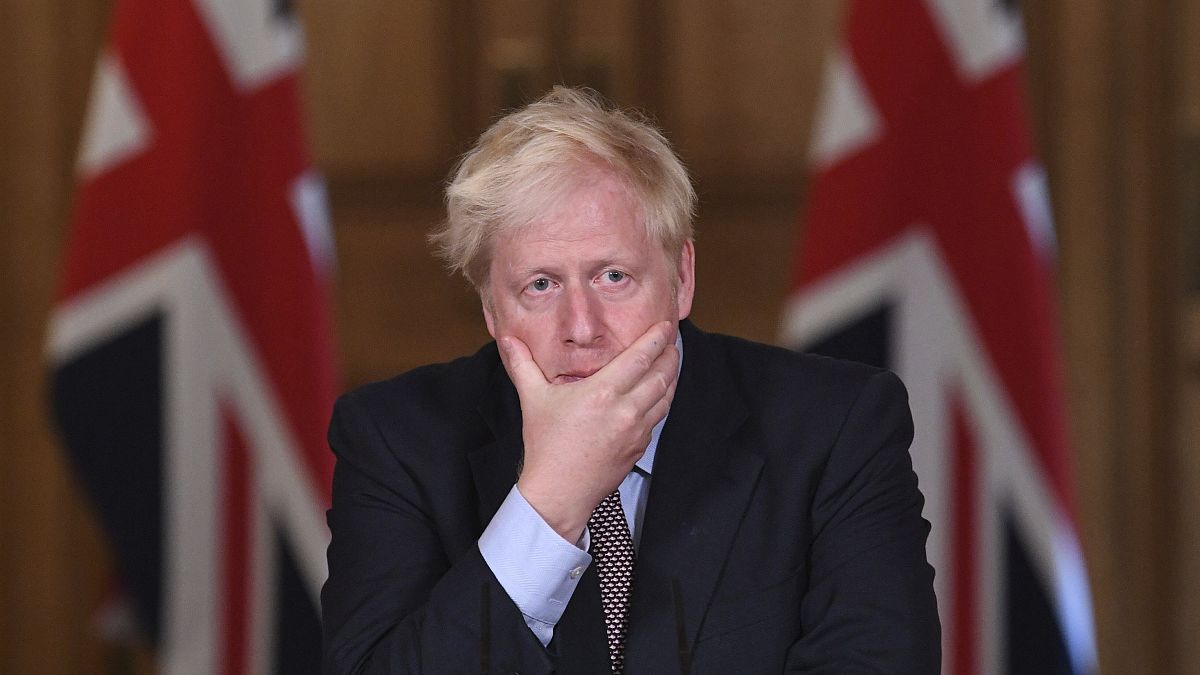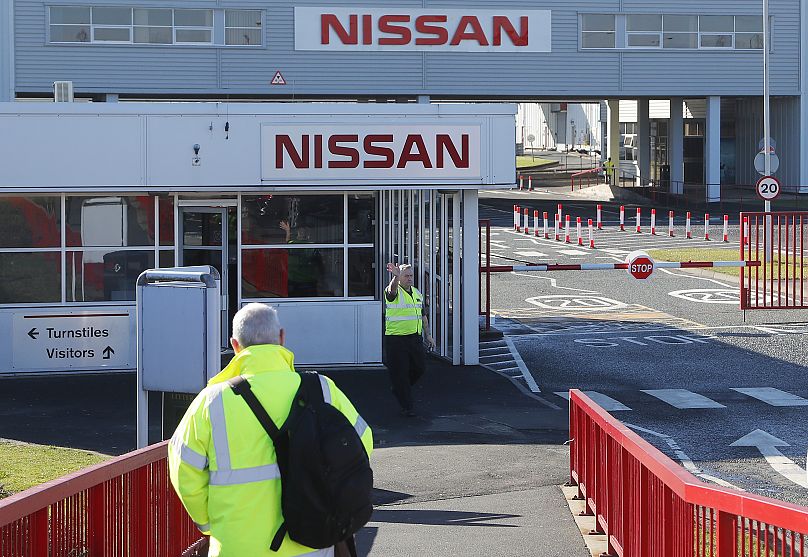The UK government has pegged its free trade agreement with Japan as a win — but how does it compare with the EU accord it will lose in December?
The UK government has pegged its free trade agreement with Japan as a win — its first major trade deal as it steps out from under the EU's shadow.
Downing Street described the move as "historic", saying it would increase trade with Japan by an estimated £15.2 billion.
While official details of the deal are yet to be released, how does what we know of the accord compare to the one the UK is set to lose by leaving the EU in December?
Is it anything new?
Well, no, not really, according to the trade experts Euronews spoke to.
"Fundamentally, this is an exercise in keeping the status quo and in damage limitation," Iana Dreyer, founder of European trade policy analysis website Borderlex, said.
David Henig, director of the UK Trade Policy Project, agreed, saying: "This is mostly just an extension of what is there already."
"It's fine, it's better than not having it, but it's spectacularly not very exciting," he added.
Are there any big wins or losses for the UK?
The major win for Britain here is that "there is a deal," Henig said, "the good news is that trade will not be particularly affected at the end of the year."
Dreyer also emphasised the fact that no major disruption in trade with Japan, one of UK's top trading partners, was the stand-out win for Britain.
She added that both sides have tried to add some "extras", which include sections on digital trade and financial services.
Britain wanted an ambitious digital deal with Japan when it was in the EU, but did not succeed as the bloc was hesitant.
Chapters in the deal looking at digital trade, which would secure free data flow and prevent forced server location, reflect a major goal that Japan pursues with all of its trading partners and did not manage to negotiate with the EU.
However, Henig refuted this and dismisses the digital plans as "fairly meaningless".
"There's no great evidence that having these different digital provisions is going to make a huge difference ... it's fine, it's good but it's nothing major," he said.
"It's something they (the UK government) can do that is different to the EU, but the evidence of it making a great amount of difference is not high."
In a world where production is carried out across borders, such as in the car manufacturing and electronics sectors, Japan has agreed to count products with a significant amount of EU components as a UK export.
While these measures should ensure the continuity of UK exports to Japan, fundamentally, Britain is still likely to lose a lot of Japanese production where companies were using the country as a hub to export into the EU single market, Dreyer said.
The EU would have needed to be involved in this deal for that to happen, she added.
So for the likes of car manufacturers, such as Nissan and Honda, this remains "a major change" as they invested with the idea that they would be selling seamlessly to the EU Single Market.
"This is something the UK government will not publicise," Dreyer said.
What does it mean for the UK's accession to the CPTPP?
International Trade Secretary Liz Truss said that, strategically, the deal was an important step towards joining the Trans-Pacific Partnership (CPTPP), which would place Britain at the centre of a network of free trade agreements.
Henig agrees it is a step towards becoming part of the CPTPP in the Asia-Pacific region, but says "this won't be instant, it's something that will happen over time".
"There are plenty of other issues, plenty of other countries (to approve the move) before that happens, but it's a good start."
However, the announcement came as negotiations between the UK and the European Union took a turn after a British internal market bill advised overriding parts of the 2019 withdrawal agreement in breach of international law.
EU officials said yesterday that they wouldn't shy away from taking legal action against the UK.
Henig thinks this racket could hurt the UK's chances of joining the CPTPP, saying the "drama" could bring into question the UK's "trustworthiness" among members of the bloc.
"It (the UK) signs on to a legally-binding international agreement to then undermine it," she said. "It's probably not a good signal the UK is sending."
Is this a sign of what the UK's future trade strategy might look like?
If this is a sign of things to come for Britain, "it doesn't suggest any great ambitions for the UK in trade policy," Henig said.
"There hasn't been a huge vision of how we will do things differently to the EU," he added.
Dreyer thinks the UK's trade strategy is to target bilateral deals with countries that have signed the CPTPP to make and the deal with Japan is a stepping stone for this.

